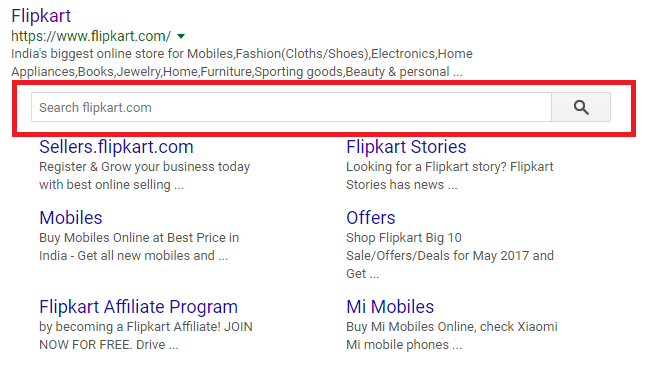
A schema is a structured data that tells the search engine about your page’s content. Did you know? It can be beneficial for your SEO too. Here’s how…

Should you consider schema mark-up when it comes to planning your SEO strategies?
We insist you should.
Gone are the days when schema markup was nothing but a merely structured data of a website. Today’s SEO has started considering it as the potential key factor for site’s visibility as Google has hinted that it can be a part of its ranking algorithm. The markup tells search engines about your page content which in turns can affect your rankings in SERPs and improve the domain authority of your website.
In other words, it indirectly influences your page’s visibility in SERPs.
However, it can’t be denied that most of SEO people are not aware of schema and its functions. Surprisingly, only 31.3 percent of websites has used Schema mark up most of them are of basic level.
This is why we have come up with everything to educate you on schema mark up, from basic info to the various types, so that you implement in a right way to boost your site SEO.
What is Schema?
is structured data or a code which is used to put on the website so that a search engine knows what your website is all about. It is somehow like rich snippets.
In simple words, schema clarifies to the search engine what your page is about. Later, search engines can interpret this information available on your web page so they can display relevant results to users based on search queries. A search engine shows the results with social media icons, tweets, basic info and reviews in its searches.
Here is a simple example by Brightlocal.com to know how schema does that:
“If a page is talking about Java, your Schema markup will clarify to search engines whether the page is about coffee, a programming language code or the Island in Indonesia. This is one of the most important benefits of Schema markup — it can be used to clarify exactly what a business is about.”
You can also read: How Google AMP can Boost Your Website’s Visibility in Search Engine
How is It Done?
Schema microdata is placed in between the content of a page to define exactly what it is and how it should be treated. And it is quite simple and you don’t need to learn coding for that. Schema.org provides you a list of the most common type of schemas or markup vocabulary that can be understood by all search engines. You can lift the tags from here to add to your HTML to improve your page appearance.
BENEFITS OF SCHEMA MARKUP FOR SEO:
Schema markup is all about making your page visually pleasing to attract user’s click. Besides, it makes the search engine to interpret the content of your page easily and pull out the more information from that.
Here are the benefits of schema markups helping your website gain visibility in SERPs:
- Schema markups make your page looks more attractive, informative and engaging in SERPS with snippets and images. A user is more likely to click such results. This is why websites having schema markup have a possibility to rank better than those without mark up.
- Local businesses can clarify to search engines what their business is all about, what they sell and how to contact them.
- With a markup, search engines understand your business type and offerings. For example, you markup explain that you are a dentist and not an orthodontist; and you are available in different languages. Or that you deal in Apple PCs and not the apple fruit.
- Schema markups are useful to promote events directly in search results for local queries like “events near me”. Your business pops up in the search results with information about the venue, performers and ticket sellers.
- With the help of schema markup, you can display business details in SERPs, like logos, contact numbers, customer care, social media accounts, blogs, and founders. If your business has various names or you have changed a name, your Schema will let the search engine know about that.
You can test your Schema and Structured Data Markup with Structured Data Testing Tool
.
Which Schema is Right for My Website?
There is plethora of schemas to choose from. However, it is not easy to determine which one is meant for your website type. Here, we have come up with few schemas that can be used on all website types.
Organizational Schema Mark Up:
Organizational schema markup is used for organizations like school, NGO, company, club, etc. It allows you to add logo, social profile links and basic information about your organization.

Website Schema Markup:
Website Schema markup is used to show Search Box Feature in SERPs along with a site name. Make sure you have an existing site search on your website so that Sitelink Search Box element works for you.

Breadcrumbs Markup:
As the name suggests, Breadcrumbs markup helps you create the breadcrumbs on your site to generate breadcrumb rich snippets. These breadcrumbs make it easy for users to trace the various categories given in a link. In this way, it helps users to find the current location within the site, based on hierarchy, user trail or both.

Site Navigation Schema Markup:
Site Navigation Schema is used to make search engine aware of your site structure and navigation. In simple words, the markup shows the categories like About Us, Our Services, Contact, and Our Locations in SERPs. For example, the page given below has all its major categories displayed by the search engine.

Video Schema Markup:
If your page has Video Schema markup, it will appear in SERPs with small tiny videos next to your results. These videos can be embedded or hosted video content. It will make your page stand out in the sea of search results.

Schema Product and Offer Markup:
These markups are widely used for e-commerce sites. They are used together to show product information like price, status information, and availability in Google SERPs. Product schema requires you “name” property while Offer schema requires the properties like “price” and “price category.”
Schema Rating Markup:
Apart from being used on e-commerce sites, the schema is used for local business sites like a restaurant to show user’s ratings. To show the multiple ratings on a product, you can use Aggregate Rating schema.
Schema Article Markup:
Schema Article markup helps your content appear in Google News and article search suggestions. You can choose NewsArticle or Blogposting schemas, depending on your content. The required properties for Schema article markup are headline, image and Datepublished.
Schema Local Business Markup:
LocalBusiness and PostalAddress schema markups are useful for your local listings, especially for the physical stores or locations. The schema allows you add a physical address, business hours, and payment types.

Schema Person Markup:
This schema provides information about the individual in which you can showcase the date of birth, about family, social media icons etc.

Same As Schema:
Same as Schema is used to show social media profiles of a person or organization in search results.
You can also read: How to Optimize Your Content for Google Quick Answer Box
So this is all about how Schema markup can enhance your SEO. Again, schema is not a “sure shot” SEO technique—instead, it is a way to make it easier for search engines to find and display your page in an engaging way, which in turns boost its visibility.

An enthusiastic Human Being with a zeal to express as much she can in words… and Blogs gave her a medium to express and share her knowledge. Has written for eminent blogs and fields like the social media, internet marketing, technology, lifestyle (tattoos, body art, fashion, etc.), politics, and the list is still increasing.

